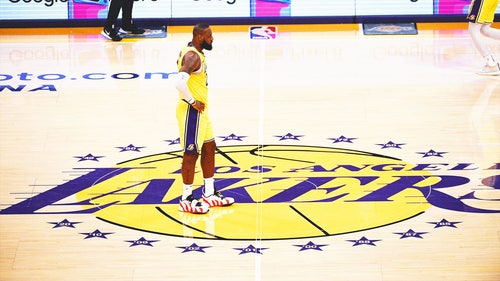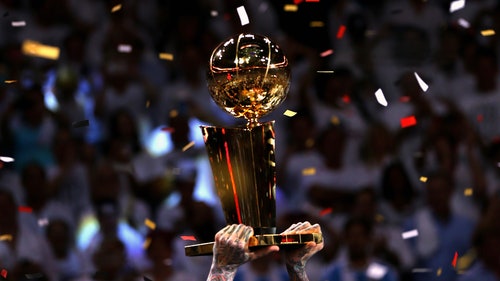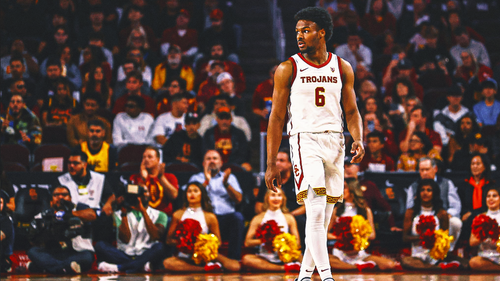
Greatly Flawed
We arguably learn more from the greats, and certainly more about them, when we see them face adversity, as opposed to watching awestruck as they do their whole greatness thing.
They make it seem so effortless during all those triumphs, which are all about wondrous athletic spectacle, and not so much about intellectual enlightenment.
There was something intriguingly satisfying, therefore, about watching Michael Jordan taken out of his comfort zone in Sunday night’s sixth episode of “The Last Dance,” the segment of ESPN’s 10-part series that veered sharply away from the largely glowing narrative of its predecessors.
It delved into the reality that Jordan has flaws — not disgraceful or shameful ones, but human ones. He made mistakes, with neither dire nor devastating consequences, but which sliced through the ultra-sweet veneer that 1990s advertising executives would have had you believe.
When Jordan talks about his successes and the ferociously tempestuous rivalries that forged his iconic career, you see the kind of assuredness that allowed him to reach the very pinnacle and scale heights no player may ever again reach.
It is easy to talk about how he finally dismantled the Detroit Pistons or shredded Clyde Drexler or superseded Magic Johnson, because basketball for him was a puzzle, and he always had the tools to find a solution.
Talking about his gambling wasn’t so simple for Jordan. Frankly, he didn’t seem to enjoy it much at all in this episode. Explaining away a casino trip to Atlantic City the night before a playoff game in the most difficult series the first-era Chicago Bulls would experience was always going to be an uphill task.
He couldn’t make it sound like a good idea when he told his side to Ahmad Rashad all those years ago, and he still can’t. And that’s okay. After all, the Bulls won.
Director Jason Hehir sandwiched many of the tougher Jordan topics into one episode. Butting up against the gambling topic was detail of the time, in 1990, when Jordan aggravated a portion of the African-American community by refusing to support black candidate Harvey Gantt against incumbent Jessie Helms in the North Carolina Senate race.
Even Jordan’s mother, Deloris, who has emerged as a sweet-natured and surprising star of the series, wanted him to back Gantt, but Jordan would go no further than to send a campaign contribution, while making an ill-received comment that Republicans also buy sneakers.
Episode 6 saw strong criticism over that stance by author Nathan McCall and measured disappointment from Barack Obama.
“For somebody who was, at that time, preparing for a career in civil rights law and in public life, and knowing what Jesse Helms stood for,” Obama said, “you would have wanted to see Michael push harder on that.
“On the other hand, he was still trying to figure out, ‘How am I managing this image that has been created around me? And how do I live up to it?’”
Remember, Jordan agreed to the behind-the-scenes 1998 filming that forms the backbone of the documentary on the agreement that he would have control over what was portrayed. That he signed off on such thorny topics is to his credit — and it was the right move. Without the trickier elements of Jordan’s tale included, the series would have risked becoming a fawning informercial.
Indeed, legendary filmmaker Ken Burns has already criticized “The Last Dance” over the fact that Jordan is too heavily involved.
“If you are there influencing the very fact of it getting made, it means that certain aspects that you don’t necessarily want in aren’t going to be in, period,” Burns told the Wall Street Journal. “That’s not the way you do good journalism … and it’s certainly not the way you do good history, my business.”
Burns has since contacted Hehir to clarify the context of his remarks, yet he had a point, kind of. Burns makes a different kind of film. Epics like his love letter to baseball in 1994 and the incredible works on major periods of American history are essentially tomes that take on the form of a visual encyclopedia.
But “The Last Dance” is a peek behind the curtain, not the definitive glance.
It is a compelling show because it is a compelling topic, more so than magisterial storytelling. It jumps around a lot, which is often clever, but does so at a dizzying pace. To an extent, it must, as there's so much ground to cover, particularly when the series does the enviable job of shining a light on Jordan's flaws.
If anything, the speed provides the realization that offers the ultimate endorsement for why America is transfixed, still. It reminds us that 10 hours — even these 10 hours — might not be anywhere close to enough to tell the full Jordan story, warts and all.














































































































































